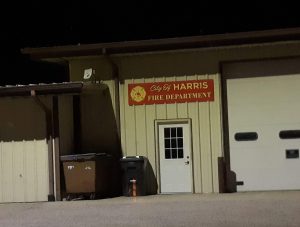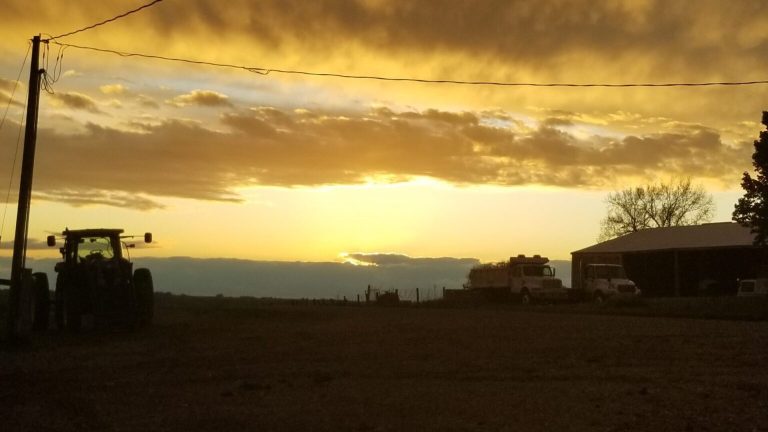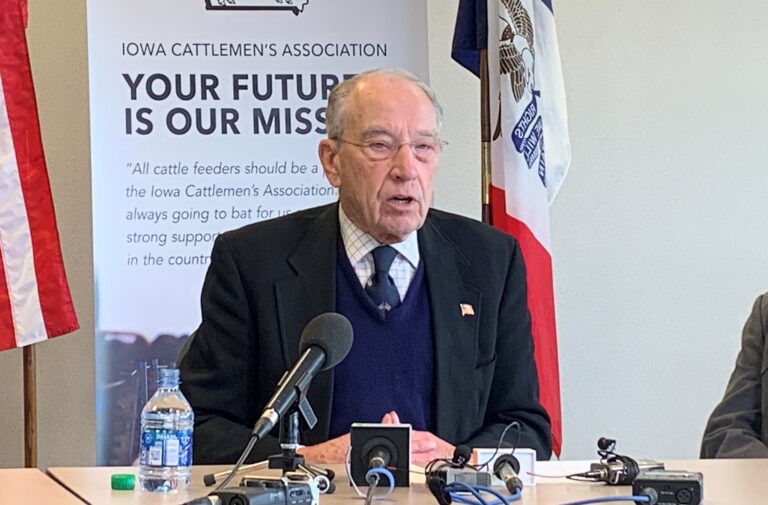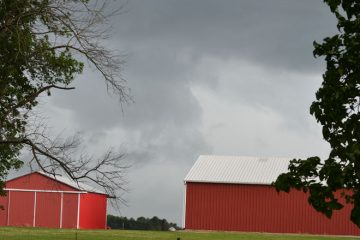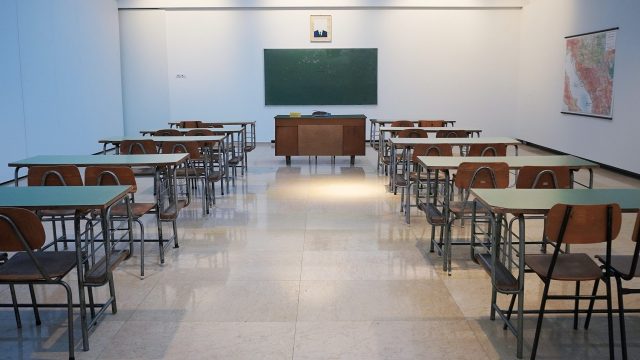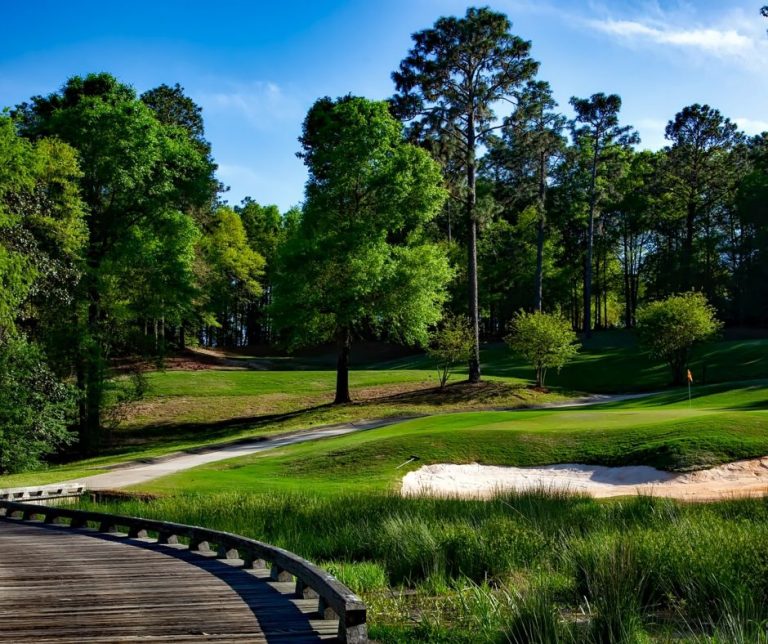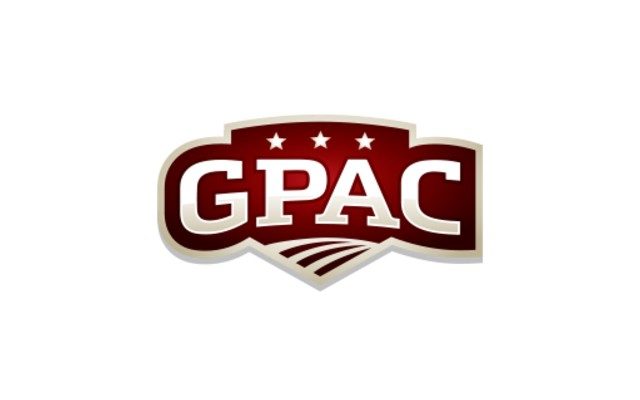IARN — Iowa Secretary of Agriculture Mike Naig has announced that 17 urban water quality projects will receive funding from the state’s Water Quality Initiative. The Iowa Department of Agriculture and Land Stewardship (IDALS) will provide financial and technical assistance to the communities and organizations implementing these urban water quality practices to manage storm water and reduce precipitation run-off.
“These projects will help show the conservation progress we can make when rural and urban citizens and public and private partners work together,” Secretary Naig said. “They are a good example of how Iowa’s cities and communities can make a meaningful impact on water quality for their residents and neighbors downstream, while providing a blueprint for others to follow.”
To receive state funding, the urban water quality projects must include outreach and education components and local partners to support the project. These community-based projects raise awareness about new storm water management methods and encourage others to adopt similar infrastructure-based practices to improve water quality in local bodies of water. These urban conservation projects include water quality practices like bioretention cells, bioswales, native plantings, permeable pavers, rain gardens, soil quality restoration and wetlands.
IDALS is investing over $2 million from the WQI fund to support the following urban water quality projects:
Ioway Creek – Brookside Water Quality Project, Ames – $100,000
The City of Ames is restoring two oxbow wetlands to improve water quality and reduce nutrients in and along the Ioway Creek stream corridor within Brookside Park. New native vegetation areas will also be planted along the stream corridor and signage will be installed for public education.
Storm Water Management at Cedar Falls High School, Black Hawk SWCD – $78,500
The Black Hawk Soil and Water Conservation District is partnering with the Cedar Falls School District to help implement water quality components that will benefit the Cedar Valley community, Dry Run Creek and the Middle Cedar River watershed. This will include over 30 acres of native prairie landscaping and several bioretention cells, in addition to existing soil quality restoration to reach the intended storm water management and water quality goals.
Bloomfield Square Improvements, Bloomfield – $150,000
The City of Bloomfield will replace the Historical Bloomfield Square sidewalks that are currently causing water to settle and flow back towards the buildings, leaking into foundations and basements. This settled water can collect pollutants and push them into storm drains, rivers and streams. Bloomfield plans to install permeable pavers and add a bioretention cell to the square allowing water to pass through the joints and seep into a granular stone bed below the sidewalks for retention and slow release of storm water runoff to reduce levels of suspended solids and nutrients. The bioretention cell will capture runoff from part of the street and treat the water through similar infiltration methods.
Bondurant Recreational Sports Complex Soil Restoration, Bondurant – $35,000
The Bondurant Soccer Club will complete a 13-acre soil quality restoration covering five fields dealing with runoff issues due to poor soil quality and compaction. The Soccer Club has aligned key partners to complete a cost-effective restoration effort that will provide water quality benefits to the adjacent Lake Petocka. Efforts will include deep tine aeration, spreading compost over existing turf grass, and over seeding to improve organic matter and water infiltration while decreasing compaction.
Garden Corridor Edible Arboretum Urban Conservation Demonstration Project, Charles City – $100,000
In the second phase of the Edible Arboretum development, part of a larger “Garden Corridor” area, Charles City is adding several water quality improvement practices in the city. Charles City will add a bioretention cell, interior walking paths with grassed pavers, gravel pavers, permeable pavers, rain gardens and native plants to demonstrate infiltration-based storm water quality management practices that can be replicated in residential and commercial properties.
Soil Quality Restoration Pilot Program, Clive – $100,000
The City of Clive is implementing a soil quality restoration program, targeting a streamlined approach to improving soil health on 100 existing residential lots. The benefits for Walnut Creek watershed include reducing storm water runoff and improving water quality by reducing nutrients and sediment.
Greenbelt Storm Water Improvement and Demonstration Project, Decorah – $96,000
The City of Decorah is implementing strategically located urban storm water conservation practices to improve water quality in the city by infiltrating runoff from existing industrial and new development sites. A proposed constructed wetland located upstream of the City, within Winneshiek County Conservation Board’s Dry Run Greenbelt area, will help capture runoff from an adjacent industrial area and serve as a major destination point for a planned recreational Dry Run Trail. Additionally, Sunflower Child Development and Discovery Center in Decorah will implement a bio-retention system in the southwest corner of the property filtering and treating runoff before it is released to waters downstream. Thirty-five acres of native landscaping will also be implemented along the Upper Iowa River in Decorah as a form of floodplain management to reduce bank erosion while providing increased infiltration.
Student-Led Storm Water Improvement Project, Drake University – $79,110
The Drake Environmental Action League club is partnering with Drake faculty and staff, the City of Des Moines and Urban Conservationists with the Iowa Department of Agriculture and Land Stewardship to identify best management practices for the highly visible site adjacent to Cline Hall to improve water quality. The project will implement bioretention cells to infiltrate and filter storm water runoff before entering Ravine Creek. The project will provide academic and research opportunities for Drake students and faculty, and will serve as a site for educational community events.
Water Quality Improvements, Hartford – $111,000
The City of Hartford will install permeable pavers that intercept and treat flows from adjacent rooftops and parking lots in town, reducing erosion and runoff entering the Butcher Creek watershed from downtown Hartford. A bioretention cell is also proposed along North Vine Street to intercept surface flows and treat the runoff before releasing to Butcher Creek.
Water Quality Project, Hospice of Washington County – $60,464
Hospice of Washington County will construct a new building project on their existing property that incorporates water quality features. The site of the old building will be retrofitted with two bioretention cells to mitigate water runoff, filter surface water, and control its release into the local storm sewers. The overall project will also use native plantings and seeding in the bioretention cells and building landscaping. The disturbed areas of the property will use compost, topsoil and tillage to improve soil conditions and reduce nutrient runoff into Crooked/Long Creeks.
Community Center Green Infrastructure Project, Lake View – $59,242
The City of West Des Moines will renovate the aging Crossroads Park to include storm water management practices including a series of bioretention cells, soil quality restoration practices, and enhancing the stream corridor to protect Western Hills Creek and Jordan Creek, which flow into the Raccoon River.
Iowa Street Storm Water Wetland, Perry – $250,000
The City of Perry will install two hydraulically-connected constructed wetlands. Together, they will treat runoff from approximately 315 acres of agricultural, industrial park and low-density residential lots. The wetland will also be an educational opportunity for the public to learn about different methods of treating non-point source runoff in urban environments. Visitors to the wetland will park on permeable pavers that will slowly infiltrate storm water before reaching a subdrain at the bottom of the system.
Shadle Park Pond Improvements, Pleasantville – $150,000
The City of Pleasantville will implement improvements to Shadle Pond and surrounding recreational areas. The project will add sediment forebays and an updated outlet structure to adequately hold and treat a variety of storm events, allow for easier future pond maintenance, and provide a healthy and more accessible fishing pond for the residents. This project complements previously installed storm water improvement projects upstream of the pond to create a cleaner overall watershed.
Polk County Creekview Storm Water Wetland, Ankeny – $250,000
The Creekview Project will redirect several hundred acres of storm water drainage from the City of Ankeny into a storm water wetland for water quality improvement before entering Fourmile Creek. It provides a unique partnership between the City of Ankeny, Polk County, and the Fourmile Creek Watershed Management Authority with a local developer. The site will incorporate wetland features in connection with riparian restoration and educational signage.
Sundown West Marina Storm Water Wetland Project, Sundown Lake Rural Improvement Zone – $100,000
The Sundown Lake Rural Improvement Zone (RIZ) will construct a storm water wetland at the Sundown Lake West Marina for the purpose of treating runoff prior to discharging into the lake. This project is part of a larger effort by the Sundown Lake RIZ to improve water quality of the lake. The overall goal is to reduce nutrients in Sundown Lake by capturing and slowing runoff from precipitation events and reducing sediment in the lake, which has been shown to carry phosphorus.
Storm Water Quality Improvements, Waukon – $100,000
The Waukon Storm Water Quality Improvements Project includes a storm water wetland that will improve the water quality of Indian Springs Pond and Paint Creek. This project will complement the city’s State Revolving Fund Sponsored Project which includes permeable pavers, a bioretention cell and native plantings within the city park. The combination of these projects will treat the entire water quality volume of the watershed as well as control the runoff from all the storm events.
Nature Center Water Quality Improvement Projects, Webster County Conservation Board – $125,000
The new Webster County Conservation Education Center will incorporate a storm water treatment wetland that redirects flows from a city storm pipe before making its way to the Des Moines River. In addition, several biofiltration areas that include native riparian pollinator planting species throughout the site will support habitat, water quality and resiliency goals.
To learn more about urban water quality practices and the projects happening in communities around the state, visit CleanWaterIowa.org.
Story courtesy of the Iowa Agribusiness Radio Network.
Photo courtesy of the Iowa Department of Agriculture and Land Stewardship (IDALS)


